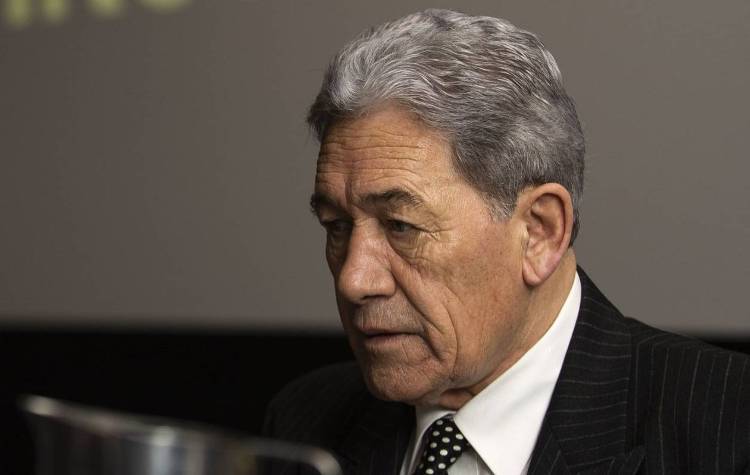New Zealand Delays Recognition of Palestine, Calls for Ceasefire and Dialogue
Minister Peters said that while New Zealand continues to support the principle of Palestinian self-determination and the eventual establishment of a Palestinian state, the timing is not yet right.

- Country:
- New Zealand
New Zealand has announced that it will not be formally recognising the State of Palestine at this stage, with Foreign Minister Winston Peters outlining the government’s position during his address to the United Nations General Assembly in New York. The decision reflects ongoing concerns about the conditions on the ground in Gaza, the role of Hamas, and the lack of clarity regarding the path forward to achieving a viable two-state solution.
Recognition Deferred Amid War and Uncertainty
Minister Peters said that while New Zealand continues to support the principle of Palestinian self-determination and the eventual establishment of a Palestinian state, the timing is not yet right.
“With a war raging, Hamas remaining the de facto government of Gaza, and no clarity on next steps, too many questions remain about the future State of Palestine for it to be prudent for New Zealand to announce recognition at this time,” Peters stated.
He warned that a premature move towards recognition could complicate international diplomatic efforts by hardening the positions of both Israel and Hamas.
A Longstanding Commitment to a Two-State Solution
New Zealand has historically supported the two-state solution, considering it the only sustainable path toward lasting peace and security in the region. Peters reiterated New Zealand’s consistent advocacy for the Palestinians’ right to self-determination while also condemning violent extremism.
“What is needed now more than ever is dialogue, diplomacy and leadership – not further conflict and extremism,” he stressed.
New Zealand continues to strongly oppose actions by both Israel and Hamas that undermine peace efforts:
-
On Israel, Peters condemned what he described as grossly disproportionate military action, settlement expansion in the West Bank, and rhetoric aimed at dismantling future prospects for Palestinian statehood.
-
On Hamas, he denounced its refusal to release hostages, its disregard for both Palestinian and Israeli lives, and its stated determination to destroy Israel.
Conditions for Recognition
While stressing that recognition of Palestine is a matter of when, not if, Peters laid out several key conditions that New Zealand views as essential before such recognition can occur:
-
Real and sustained progress toward the viability of a Palestinian state.
-
Israel halting and reversing settlement expansion and returning to meaningful negotiations.
-
Hamas disbanding, disarming, and releasing all hostages.
-
Palestinian leaders renouncing violence and committing to a political solution.
“Like every other New Zealand Government over the past 80 years, we hold the position that we will recognise a Palestinian state when the time is right,” Peters said.
Balancing Global Partnerships
The minister acknowledged that other countries, including some of New Zealand’s close partners, have already moved to recognise Palestine. He emphasized that while Wellington respects these decisions, New Zealand’s assessment differs on whether recognition at this moment would contribute positively to achieving peace.
“Recognition of Palestine is a complex issue on which reasonable people can disagree,” Peters said. “We do not question the good intentions of those who have chosen to recognise Palestine at this time. Where we differ is whether recognition now by New Zealand will make a tangible, positive contribution to the realisation of a two-state solution.”
Humanitarian Focus and New Aid for Gaza
Alongside its diplomatic stance, New Zealand announced an additional NZ$10 million in humanitarian funding to support international partners delivering emergency assistance to Gaza.
“The international community must retain its focus on the very urgent and practical challenge of getting as much humanitarian assistance as possible into Gaza,” Peters said.
New Zealand reiterated its calls for:
-
An immediate ceasefire in Gaza.
-
Unfettered humanitarian access for aid supplies.
-
Compliance with international law by all parties.
-
An eventual comprehensive political settlement leading to a two-state solution.
-
An end to illegal Israeli settlement activity and current military offensives.
Transparency in Decision-Making
The government has also released Cabinet material related to its decision on recognition, underscoring its commitment to transparency on an issue that has both international and domestic significance.
By balancing humanitarian aid, international diplomacy, and a cautious approach to recognition, New Zealand aims to remain a principled voice in global discussions on the Israel-Palestine conflict, committed to advancing peace through dialogue rather than deepening divisions.
ALSO READ
Palestinian President Abbas appears via video at UN General Assembly after US blocked his visa, reports AP.
Ukraine and Syria Rekindle Diplomatic Ties at UN General Assembly
Unearthed Voices: Unsung Leaders at the UN General Assembly 2025
Unvoiced Perspectives: Emphasizing Justice, Rules, and Reform at the UN General Assembly
Russia Upholds Two-State Solution Amid International Palestinian Recognition










